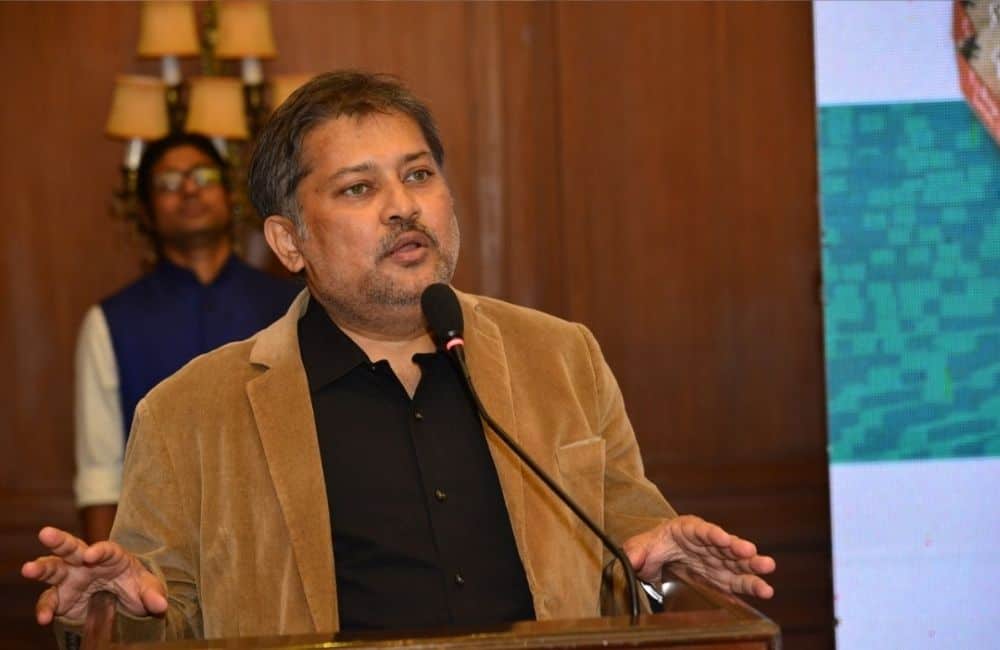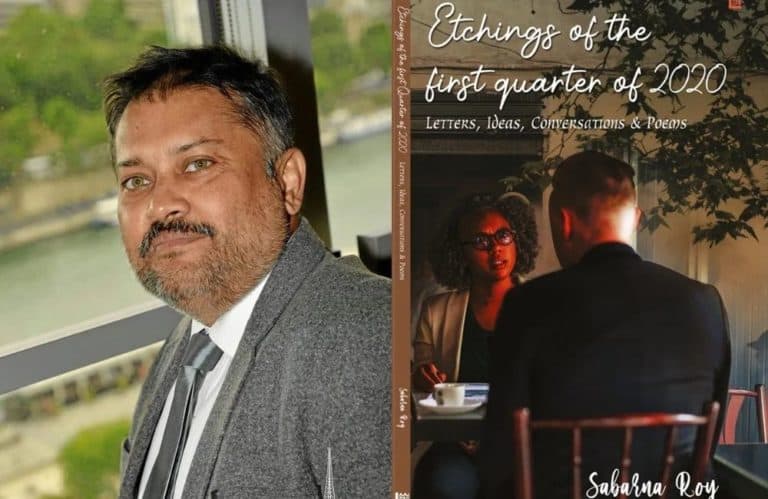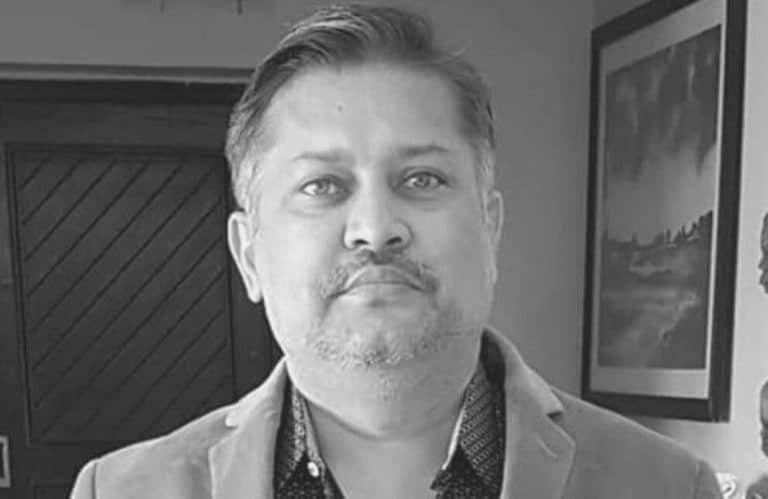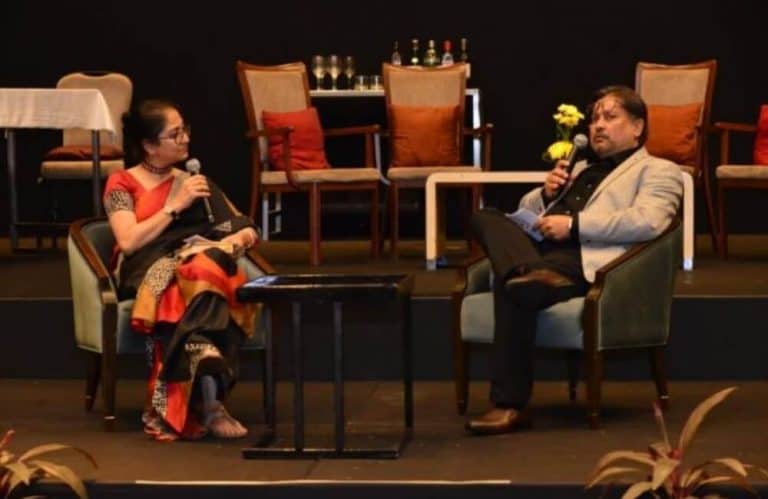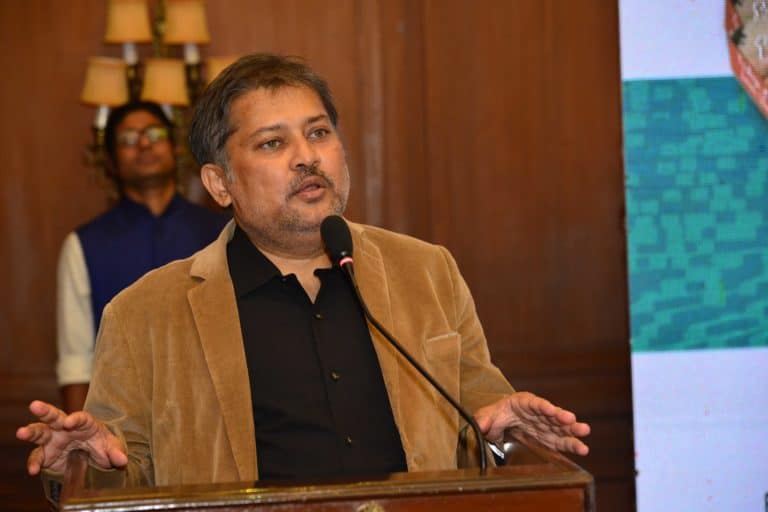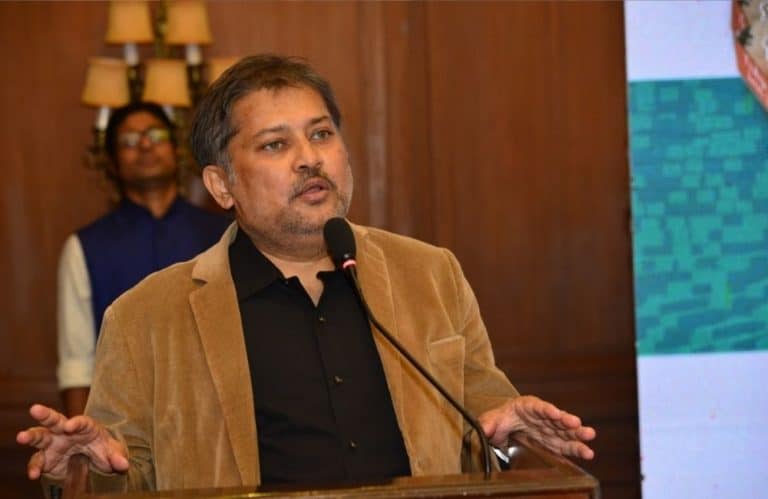Critically acclaimed bestselling author Sabarna Roy shares portions of his life journey
Sabarna Roy is a much-awarded, critically acclaimed bestselling author of 6 literary books: Pentacles; Frosted Glass; Abyss; Winter Poems; Random Subterranean Mosaic: 2012 – 2018, and Etchings of the First Quarter of 2020. He is the lead author of a technical book which has been published from the European Union and has been translated into eight major European languages.
He was awarded the Literoma Laureate Award in 2019, Literoma Star Achiever Award 2020, Random Subterranean Mosaic: 2012 – 2018 won the best book of the year 2019, the A-List Award for excellence in fiction by the NewsX Media House, Certificate for The Real Super Heroes for spreading a spirit of positivity and hope during the COVID-19 Pandemic from Forever Star India Award 2020, the Certificate for Participation in the Indo Russian Friendship Celebration 2020, and the Literoma Golden Star Award 2020: Lifetime Achievement.
Q&A
Q.1: How has been your journey from a technocrat to a Bestselling Author?
It is not as if I have abandoned a technocrat’s job, and I only concentrate on writing literary books. I shuffle between my two professions of being a Senior Engineering Professional and an Author of literary books.
Yes, life has changed after I started writing books since July 2007, when I felt I would die if I did not write. Life has become busier juggling between two different kinds of professions. As a Senior Engineering Professional, I am also involved in writing research articles in the environment sector in peer-reviewed national and international Journals.
During the on-going Pandemic, I have been busy in various digital conferences as a Senior Engineering Professional and a literary author. Before the Pandemic, I had to attend national and international conferences and literary meets.
Q.2: What shift you find in your thought-process once you find yourself in the league of poets and authors despite an ordinary human being?
I do not think there is a definite shift in my thought process. I write whatever ideas, thoughts, imaginations, and intuitions flow through my mind. This happens to all human beings. The only difference is authors write about them, and others do not write.
Of course, somebody can sing or play an instrument or pursue some other talent. I am inclined to believe every human being has some talent. Even a reader who reads a book requires the patience and necessary understanding to consume a book. The same applies to the audience of any other art.
Q.3: The world knows you as a Bestselling Poet & Author. Had you been writing since your school days, or poetry come to you in the prime of your youth?
I wrote during my university years between 1984 and 1988.
I have been a poet since the age of 18. The first book published by me was a slim book of English poems, titled: Pain, which created a stir in Calcutta’s student circle and literary academia.
I almost abandoned writing in 1989. I wrote a full-length play in Bengali in 1994, which was later published in the annual edition of the renowned Bengali Journal Bohurupee in 2010. Apart from this, I did not write, except occasionally, but did not publish them until July 2007 when a very potential virus almost bugged me to write. I felt I would die if I did not write.
Since then, I have been writing very seriously, and my first book got published in 2010; it’s titled: Pentacles.
Between 2010 and 2020, I have produced 6 Literary works. After Pentacles came Frosted Glass, followed by Winter Poems, and after that came Abyss. In 2019, Random Subterranean Mosaic: 2012-2018 was published, and in June 2020, Etchings of the First Quarter of 2020 was published.
Q.4: How much of the thought-process of your school life has shaped your creativity?
The school has had an indelible effect on my life. I studied at Sacred Heart Convent School, Ludhiana in Punjab. It had one of the best campuses I have ever seen in my life, with beautiful playgrounds for various ages, libraries, auditoriums, and clubs to pursue all kinds of talents and different other things.
I would say my teachers in school kindled my interests in literature. We had a beautiful annual Journal published during the Christmas time, where I regularly contributed since Standard VI. Our teachers had a lot of time to discuss books and our writings with them. The exhibition in school used to be fabulous.
Once in Standard VIII, I made a model of Shakespeare’s original house at Stratford-upon-Avon, UK. Many years later, I visited Shakespeare’s house at Stratford-upon-Avon, and I felt very nostalgic about my display in the exhibition. I also played the role of Antonio in William Shakespeare’s play,
The Merchant of Venice, in one production. Likewise, the science exhibitions were also a treat to participate in and watch. All these things put together went on to shape my creativity at an early age.
Q.5: What have been your favourite books during your school days?
The most favourite books during my school were as follows: –
- David Copperfield by Charles Dickens.
- The Bishop’s Candlesticks by Norman McKinnel.
- Dakghar (The Post Office) by Rabindranath Tagore.
- The Hound of the Baskervilles by Arthur Conan Doyle.
Q.6: How much of your writing style has changed since you debuted as an author?
I do not think my writing style has changed much except for the fact that with increasing age, I want to write more lucidly every day so that what I want to say is understood by everybody.
Q.7: What would be your advice to the school kids who want to make their mark as an author and poet?
I can give a few tips, which can work remarkably well for aspiring authors and poets in school: –
- Maintain a journal or a diary for yourself. This is a tool where you can talk to yourself most privately, and later your journal or your diary will reflect the way you have progressed in life.
- Read as much as you can and reflect upon what you are reading. Also, jot down your book reviews, however brief they are, in your journal or diary.
- Capture all your thoughts, ideas, and dreams and let them flow through you in the form of written pieces in your journal or diary.
- If you are inclined enough, create and maintain a regular blog and socialize it among your friends, family, and relatives and seek their opinion about your writing. This is a process from where you will learn.
- Try to be original and authentic, however immature you are, because in being close to yourself, you will reconnect with your soul during writing. This is very critical and significant to become a good author or a poet.
Source: www.thestatesman.com/

